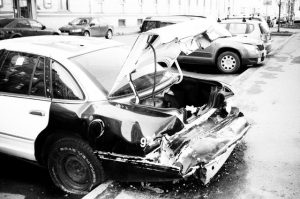I’ve Totaled My Vehicle, But I Still Owe Money. Now What?
Accidents happen when you least expect it. Since more and more drivers are driving faster these days, a collision could occur anywhere. Also, no matter how vigilant, careful, and a defensive driver you are, your vehicle may still figure in an accident. But what if you totaled your car, but you still owe money on it?
This is a complicated situation that sounds painful for your wallet. But in the aftermath of the accident, this is what you should know:
What does “totaled” mean?
This came from the insurance term “total loss”. It’s when the needed repair exceeds the actual cost of the vehicle when purchased. At this point, spending the money on repairs isn’t a practical option.
In some states, they categorized vehicles as totaled when the repair cost is at least 80% of the purchasing cost of the car.
However, the problem arises when you still owe money on your car. In this case, you should do the following steps.
Communicate with your insurer
With car insurance in place, the first thing you have to do is to contact your insurance provider. They will be the one to assess if your car is a total loss or not. If they declare it’s so, you can contest and demand another inspection.
First, you should research the value of your car. Vehicle prices may appreciate and depreciate over time. If yours appreciated, you have a fighting chance to reverse the decision of the insurance company.
Another thing that you can do is to ask an auto body shop to inspect your car for collision repair quotes. Depending on the quoted price, you can present it as proof that your vehicle isn’t totaled yet.
What happens now?
If your car is indeed a total loss and you still owe money on it, your insurer will pay the financing lender to settle the loan. However, you have to prepare since cars depreciate fast. Make sure that your insurance company appraises your car’s market value first. If it turned out to be lower than the purchasing cost, you’d shoulder the rest of the loan upon the insurer’s payment of the appraised value.
Nevertheless, your insurance company can give you a financial cushion by paying a portion of the remaining loan balance based on the car’s current market value.
Purchasing gap insurance
If you don’t want to go through this dilemma, you can purchase gap insurance even before the accident occurs.
Gap insurance covers the difference between the purchasing value of the car and its current market value. This way, you have another financing source should your depreciated car got totaled.
Moreover, it’s best to purchase gap insurance at the same time as you’d purchase standard car insurance. Also, if your vehicle is financed for at least 60 months, you should invest in this insurance policy.
Car dealers and car insurers usually offer gap insurance. However, if you want to save more money, you’re better off purchasing the gap insurance from your insurer than the dealer.

